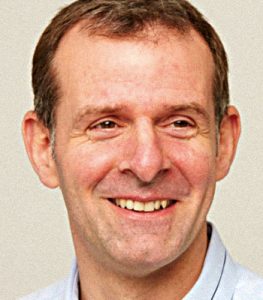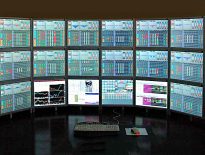Steve Clark – More of What Works

Today’s post is a profile of Guru investor Steve Clark, who appears in Jack Schwager’s book Hedge Fund Market Wizards. His chapter is called More of What Works, Less of What Doesn’t.
Contents
Steve Clark
Steve Clark set up and runs Omni Partners.
Clark appears in Jack Schwager’s book Hedge Fund Market Wizards.
- His chapter is called More of What Works, Less of What Doesn’t.
Performance
The Omni Global Fund had been profitable for 10 years in a row from 2001 to the time of Schwager’s interview.
- Compound performance was “only” 19.5% pa, but the worst year (2011) was a 0.7% gain.
The worst peak to trough drawdown was 7% and the Sharpe ratio was 1.5.
- Since the fund’s volatility is skewed to the upside, the Sharpe ratio understates its performance.
- Schwagers “Gain to Pain” ratio is an extremely high 4.1.
In 2008, when the event-driven Hedge Fund index was down 22%, Omni was up 15%.
Early career
Clark grew up in a council house on the edge of London and left school at 17 after taking his A-levels early.
- He started work as a hi-fi installation engineer.
Then a friend from school who was working as a trading assistant persuaded Clark to come and join him in the City.
- Clark couldn’t get a job on the trading floor, and considered jobs in the back office.
Eventually he became a low-paid “blue button” (ostensibly a trainee) on the stock exchange floor, working for Warburgs.
I started on South African gold shares, and literally my job was to get tea, coffee, and sandwiches, book trades, and answer the phone.
I was a very good blue button. I was very good at doing the P&Ls. I got transferred to the European desk where the people had a completely different attitude. They were very happy to talk to me and to teach me.
After I was there for about one year, I was given the Scandinavian market-making book. I was going to run the book for one week because the trader was on holiday.
This first week that I was given a book to run on my own was the week of the October 1987 crash.
But I learned a very valuable lesson from that experience: The price is where anyone is prepared to deal, and it can be anything.
My book – the book I had taken over for the week – lost several million pounds that day.
From that point on, I began to trade other books in the European area when people were on holiday. I eventually became the most profitable trader in the group.
I was very proactive in orientating the book. If I was in something that was wrong, I would cut it. I wouldn’t defend it. I wouldn’t average down. I would just cut it, cut it, cut it.
I would trade around news, trying to orientate myself on the right side of the market. I would develop my own views on stocks and be happy to run with those views.
I was so inexperienced that I didn’t have the fear. Very few people maintain their ability to take risk throughout their career. They have had too many bad things happen to them, too many fat tails.
Trading style
My thought process would be: There is lots of volume. Something is going on. Can I develop a view from that?
I am not a big believer in chart analysis. It is extremely appealing to think that you can take a data set from the past and predict what will happen in the future.
You can talk about percentage probabilities of what might happen next, but you can’t go any further than that. So I would combine the charts with other facts, such as what I knew about where the orders were.
Clark left Warburgs for a 300% pay rise at Lehman’s.
Warburg was number one rated. I came from a place where you were imbued with the feeling that you were the best. I went to Lehman Brothers, and I couldn’t make a penny.
I had no idea how to make money outside of the Warburg environment, which was so rich in order flow information.
I began to doubt my ability. It was a very depressing time.
Instead, I developed very strong relationships with other brokers, so I used their order flow information. I was also trading news flow.
When you are trading over a short to medium term, your own views on the fundamentals of a story are totally irrelevant. What you have to do is gauge what the market thinks of the story.
If I did see momentum, I might increase the position size. I am a big believer in buying on the way up.
Market Wizards
I was trading successfully, and then I read your book [Market Wizards]. The one thing that I really took away from your book was that once you understand you have a method, you can tweak that method.
Time and time again, I give traders who work for me one piece of advice: Do more of what works and less of what doesn’t.
It is a very interesting process to analyze where your profits come from, and traders often don’t know.
I had a series of trades where I had an edge. They were arbitrages. So I started looking for more arbitrage trades.
A bad trade in a Danish stock taught Clark a lesson:
Price is irrelevant; it is size that kills you. If you are too big in an illiquid stock, there is no way out.
Hedge fund
Clark went from Lehman to NatWest, then decided to set up a hedge fund.
I really had no concept of what setting up a hedge fund involved, but I figured whatever it was, I could do it.
An existing hedge fund manager agreed to seed Clark with $5M, but he went missing in the 1994 bond market crash.
I really was completely naive about the whole thing. I set up a hedge fund with no money. I had $300,000 of my own cash in the fund, and that was it.
Every trade I did would have to be for $300,000. I couldn’t trade any smaller. I ran the hedge fund out of my kitchen.
I made some money and lost some money, and then a guy I worked with very closey when I was at NatWest strongly recommended that I buy a stock. The next day, the stock had a big loss.
Eventually, I called him and he said he had been selling the stock all day. He just stitched me. That was a bad experience. I thought he was a friend, but he wasn’t a friend.
Some people who you work with for years and think will support you will do nothing to help you, while other people you know in passing may be very helpful. It really taught me a lot about human nature and made me think again about whom you can and can’t trust.
I put so much pressure on myself to make money every day. I woke up one morning around 4 A.M., lying in bed, feeling sick in my stomach, and thinking, What is the market going to do to me today? I closed the business that day.
Nomura
Clark went to Nomura to do risk arbitrage.
My approach was do fewer deals and be bigger. If you have a big enough balance sheet, buy enough shares to be sure you have enough votes. If you thought you needed 8% of shares to assure the approval of the merger plan, you might as well buy 15%.
Parents buying out subsidiaries were by far the best trade; there were no due diligence issues and you knew the deal would be going through.
Clark was eventually sacked by Nomura after a row about marking a book to market.
- He sued and won, using secret tape recordings of meetings.
I got £1.35M which was 15% of my profits. It was a bad decision to sue. If I had spent the time it took for the litigation to drag out pursuing my own business, I would have made multiples of the £1.35M. It was a bad trade.
I was finished with markets in the city. Iwas never going back. I had such a terrible experience with people – the company politics, people lying.
All I had ever done for any of my employers was make money. And yet, I didn’t have much money.
First New York
Clark moved to the States, to work for First New York Securities.
- He enjoyed this job (and the people) a bit more.
Gradually Clark set up his UK asset management firm on the side, still managing the First New York money.
- Eventually Clark became a managing member of the firm to help the ageing founders with the migration to asset management.
Entries and size
You have to train yourself to trade at a smaller size so that you trade within your emotional capacity. It is the size of the position you put on rather than the price at which you put it on that determines your ability to keep the position.
Traders often focus on where to enter a trade (the price), but the entry size is more important, since is allows you to stay with a winning trade.
Volume
One of the things I did at Lehman when I was short on information was to filter for European stocks that had unusually large volume. Then I went through all the charts of those stocks to see if any were making interesting bottoms.
I would then call my contacts and ask them what they knew about those specific stocks. That’s how I started to find situations to trade.
Volume is incredibly important. I have found it to be a very valuable indicator. And still do? Yes. If a stock has been bombed out, and there is a sudden jump in volume, somebody is there beginning to buy.
Then you watch for signs that the stock is resilient on down days in the market, suggesting there is underlying buying support for the stock.
Advice for traders
First, they need to make sure they understand their motivation. Not everyone who says that want to be a trader really does. Trading has this macho mystique. People will say they want to be a trader and won’t admit to perhaps wanting to be an analyst.
Successful traders all work hard. Nearly all are one-trick ponies. They do one thing, and they do it very well. When they stray from that single focus, it often ends in disaster.
We have seen that again and again in hedge funds. Managers diversify away from their expertise because they have made a lot of money and think they can do anything.
Really good traders are also capable of changing their mind in an instant. They can be dogmatic in their opinion and then immediately change it. If you can’t do that, you will get caught in a position and be wiped out.
Trading rules
- If you wake up thinking about a position, it’s too big.
- Never stop asking questions. Speak to as many people as you can. Research every opposing opinion.
- When everything lines up, you need to swing for it because in those situations, even if you are wrong, you probably won’t be wrong by that much.
- But if the position starts behaving in a way you don’t understand, you need to cut it because then you clearly don’t know what is going on. The market is telling you that you don’t know.
- The market is not about facts; it’s all about people’s opinions and positions. Consequently, anything can be at any price, any time. Once you understand that, you realize that you need to have protective stops.
- Your job as a trader is to make the line go from bottom left to top right. That’s it. You have to start protecting the direction of the line.
Conclusions
Schwager calls this interview “unexpectedly compelling”, but for our purposes it’s less satisfactory.
- Event-driven trading is not well suited to private investors, and those who succeed tends to have an idiosyncratic approach.
I was around the same kind of firms as Clark in the late eighties, (( Doing a very different kind of job )) and he reminds me of quite a few of the guys I met in the bars after work (I’m not suggesting they went on to be as successful as him).
- His interview is definitely one of the more frank and open ones in Schwager’s books, but it’s not as unexpected to me as I suspect it might be to Jack.
As usual, my measure is actionable content, and there isn’t too much of it.
- The advice to do more of what works and less of what doesn’t is great, but it’s harder than that.
- You have to do what works for you, and hope that it works in cash terms as well.
I’m pretty sure I would be terrible at Clark’s event-driven strategy.
As an example that’s a little closer to home, I find most company directors (and indeed, most UK companies) distinctly unimpressive, and their presentations beyond boring.
- An investment approach based around attending AGMs and cultivating relationships just wouldn’t be implementable for me.
- But I know that this style works just fine for others with different personalities.
Finding what you are good at is simpler (if not easier) for active traders, since they have more data to work with.
- In statistical terms, long-term value or growth investors might not be sure they are any good until they have been investing for decades.
The stuff on position sizing is good, and applies to all.
- Cutting size in the face of rising volatility sounds good to me.
The ability to change your mind is an obvious strength, and the advice to take a break when things are going against you is good.
- And he believes in protecting the downside with stops.
Until next time.


















